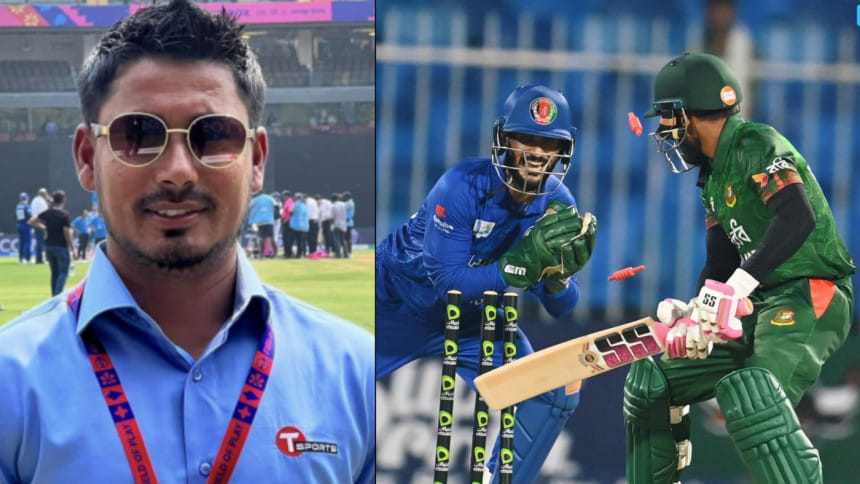Tigers not used to facing quality bowlers regularly: Ashraful

Bangladesh's weakness against quality bowling attacks once again came to the foray on Wednesday in the first ODI against Afghanistan, in which despite having the upper hand for the majority of the contest, they ended up losing by 92 runs in Sharjah.
Chasing 236, Bangladesh had reached 120 for two when skipper Najmul Hossain Shanto top-edged the ball to short fine leg against Mohammad Nabi, which triggered a dramatic batting collapse as they lost their remaining seven wickets for just 11 runs and were bowled out for a mere 143 runs.
"I don't think anybody expected to see Bangladesh getting bowled out for 143 runs after reaching 120-2. Their bowlers had so much quality, we just aren't accustomed to batting against such bowlers regularly," former Bangladesh skipper Mohammad Ashraful told The Daily Star on Thursday about the defeat in the first ODI.
The experienced Rashid Khan and Nabi took two and one wicket respectively but it was young off-spinner Allah Ghaznafar who wrecked the Bangladesh innings. The 18-year-old, playing his sixth ODI, claimed a career-best 6-26, bamboozling the Bangladesh batters with his bag of tricks.
"It was an easy game to win but these things do happen in cricket especially when you play against quality bowling attacks and if you don't read them. Like Mahmudullah couldn't read the googly, Mushfiqur [Rahim] didn't realise it was a carom ball," Ashraful said.
Three Bangladesh batters – Shanto (47), Soumya Sarkar (33) and Mehedi Hasan Miraz (28) – got starts but could not extend their innings, which Ashraful feels decided the fate of the match.
"This is a game of luck. Luck was favouring Shanto as the wicketkeeper dropped him on 21 while Miraz also got a life in the game [on four]. Soumya was batting brilliantly. Those three batters got set at the crease, they should have carried on as their 30 odd runs didn't come any good for the team.
"I think individual performance is vital, if someone scores 80, 90 or a 100, the team can expect a good result in the game."
Ashraful also spoke about how Shanto, after having the Afghans tottering at 35-4, did not go for the kill and allowed them to post a testing total.
"After taking four early wickets of the opponents, we should have restricted them to a much smaller total. Shanto should have taken an attacking approach at that time to bowl them out cheaply. He should have gone with three pacers and not keep their overs in hand for later. If we were chasing 180-190, it would have been better for us. I think we made a mistake there as well," he said.
Meanwhile, Ashraful also claimed that the lack of preparation before the series and a seven-month gap in ODIs also worked against the Tigers.
"We have been playing ODIs for a long time. Our players are more experienced than them. But when you change to another format, it takes time to adjust. If they could play one or two practice matches before going there, it would have been good for them.
"They are playing this series just days after landing in the country. We played well in Pakistan because our preparation was good," he concluded.

 For all latest news, follow The Daily Star's Google News channel.
For all latest news, follow The Daily Star's Google News channel. 








Comments